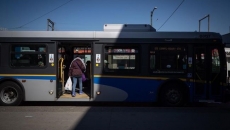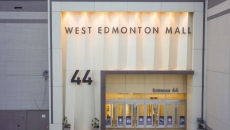VICTORIA - British Columbia's Electoral Boundaries Commission is recommending the creation of six more electoral districts in the province, raising the number of ridings to 93 from the current 87.
The commission has submitted its final report and elected members of the legislature must decide whether to accept all, some or none of its recommendations.
In addition to the call for six new districts that reflect areas of rapid population growth, the commission is also seeking adjustments to the boundaries of 72 other districts and changes to the names of 41 ridings.
Of the six newly proposed electoral districts, the commission says four should be located in Burnaby, Langley, Surrey and Vancouver.
It says many ridings across Greater Vancouver continue to grow quickly and are already more than 25 per cent above the quotient that ensures fair representation by population.
Single new electoral districts are also recommended for southern Vancouver Island and in the southern Interior as the commission seeks to balance voter populations in the Langford area, West Kelowna, Kelowna, Lake Country and Vernon.
Census 2021 population statistics were used by the commission to estimate the number of people within an electoral district and provincial Supreme Court Justice Nitya Iyer, who chaired the commission, says the recommendations reflect B.C.'s growth.
“We do not recommend reducing the number of ridings in more sparsely populated areas of the province because doing so would undermine effective representation," Iyer says in a statement.
Based on census data, the commission found British Columbia's electoral quotient is 53,773 and the usual deviation range is between 40,330 and 67,216 people per riding.
Adding the six ridings to create greater balance among districts will have a ripple effect across the province, eventually changing the boundaries of 72 ridings, says the commission report.
The report points to the Kootenay region where two of the four current electoral districts, Columbia River-Revelstoke and Nelson-Creston, are among 11 that fall below the accepted number of residents, while six in other parts of B.C. are higher than the maximum.
The commission recommendations would fix all but five northern districts where populations remain below the electoral quotient, the report says.
However, the commission is not calling for changes to boundaries of the North Coast, Skeena, Stikine, Nechako Lakes and Peace River South ridings or to Peace River North, where the population is just above the accepted lower range.
"Although we carefully examined options for consolidating the current six ridings into five, we are convinced that any such changes would deprive residents of these districts of effective representation," the commission says of the large, remote ridings that include challenging terrain and weather and often poor internet connectivity.
B.C. is required to form an electoral boundary commission after every second provincial general election, in order to ensure boundaries and ridings accurately reflect population shifts.
The latest report closes with a recommendation that six months be added to the 18-month timeline currently allotted for each commission to do its job.
"We believe that a longer legislated timeline for commission work would support a more robust and meaningful consultation process," says the report, which was submitted to the Speaker of the legislature on Monday.
Sixty-three public meetings were held in 44 B.C. communities, while more than 2,000 submissions were received as the 2022 electoral boundaries final report was compiled.






